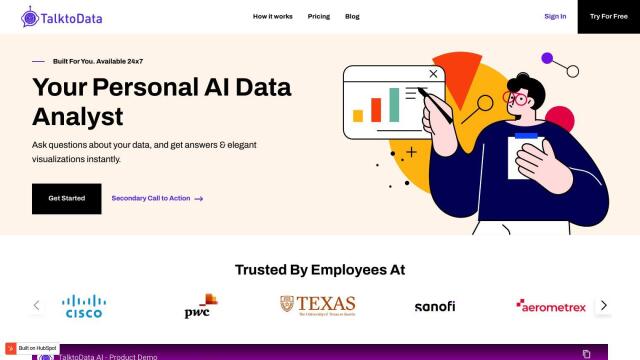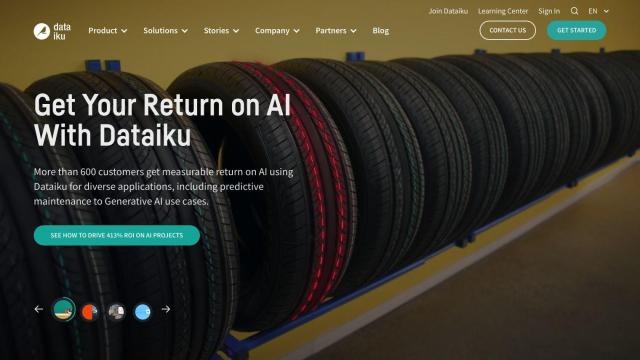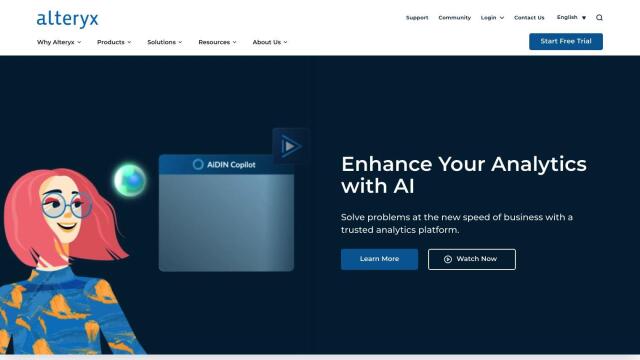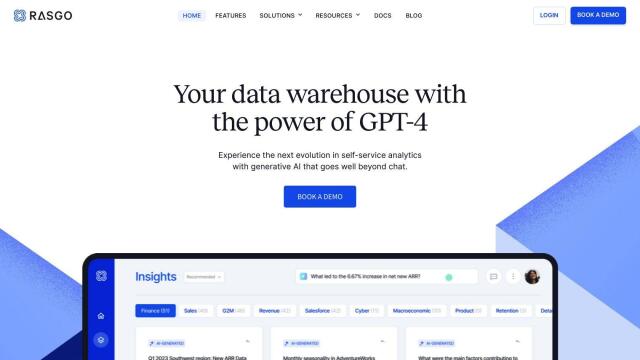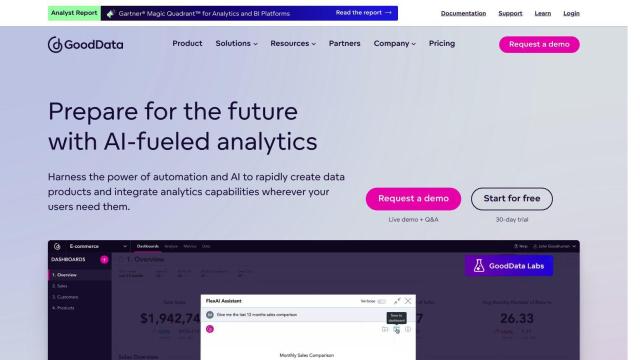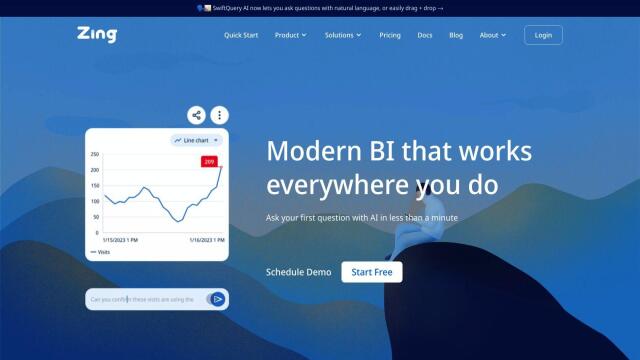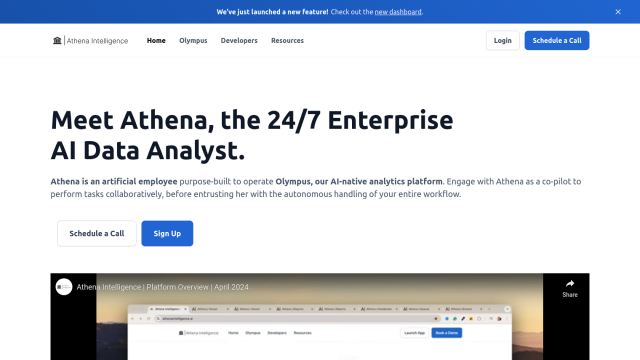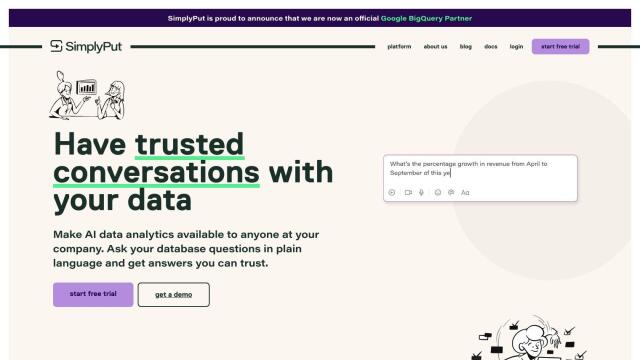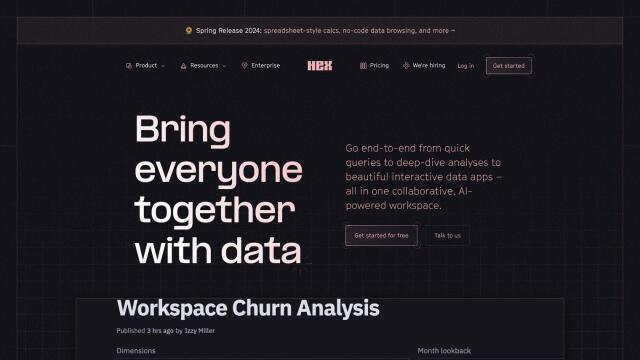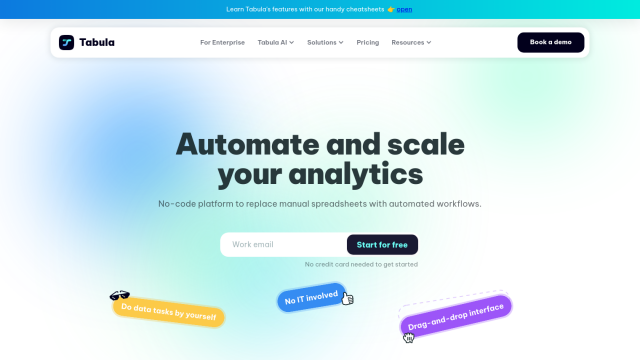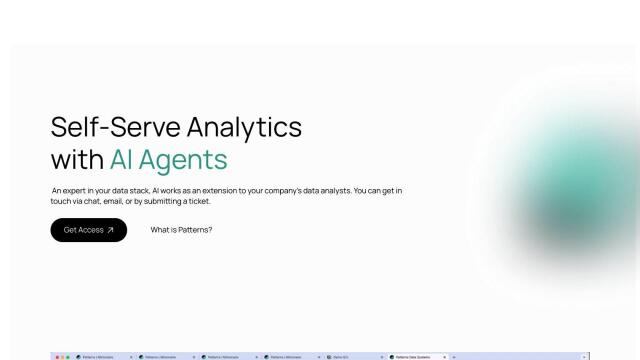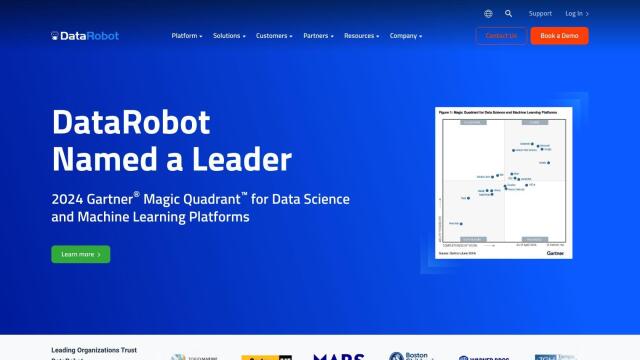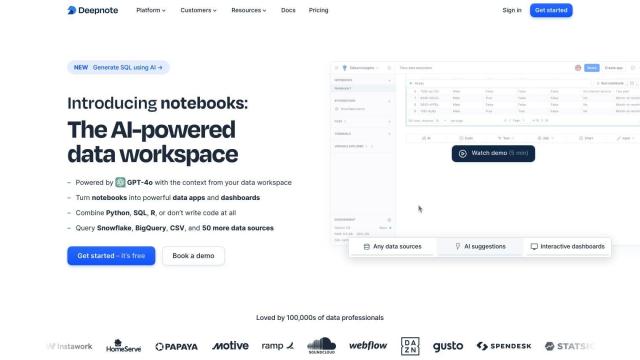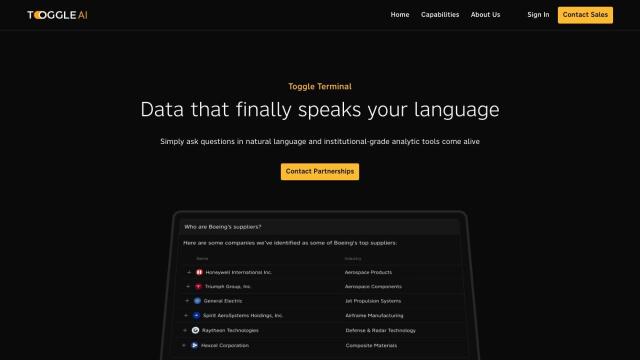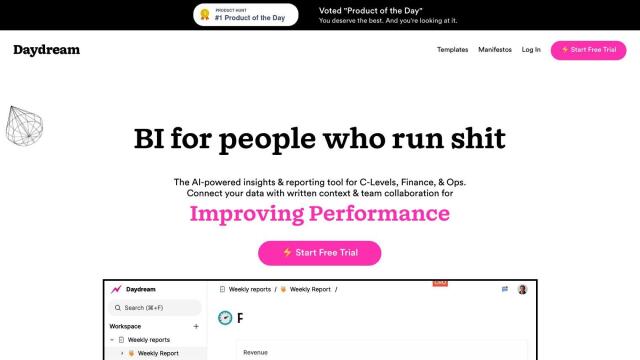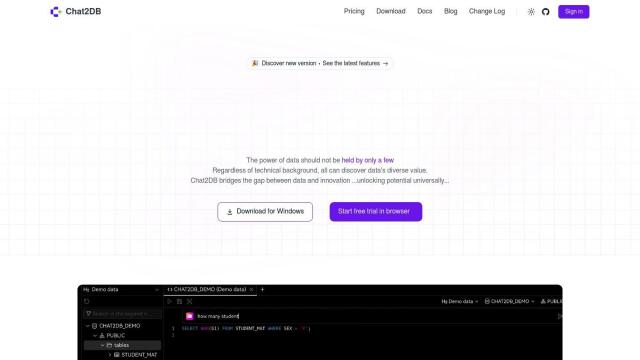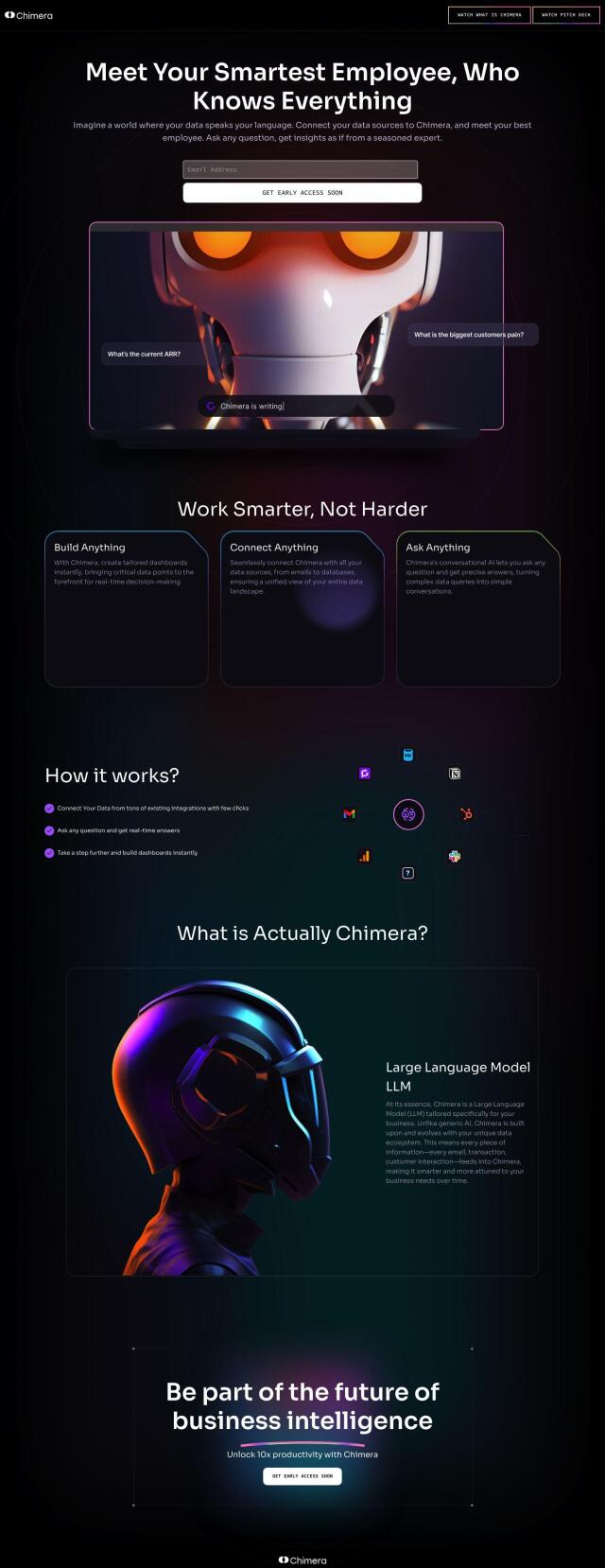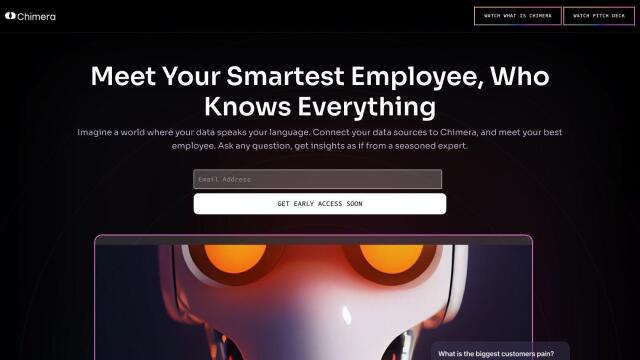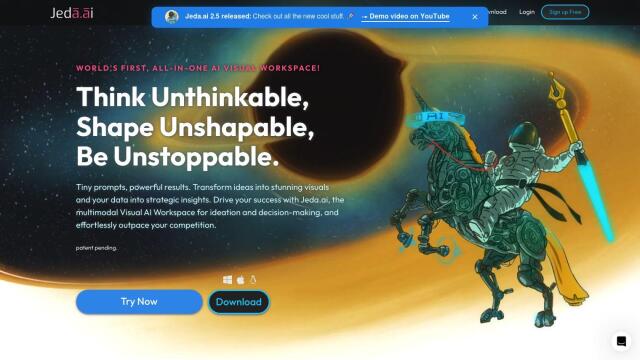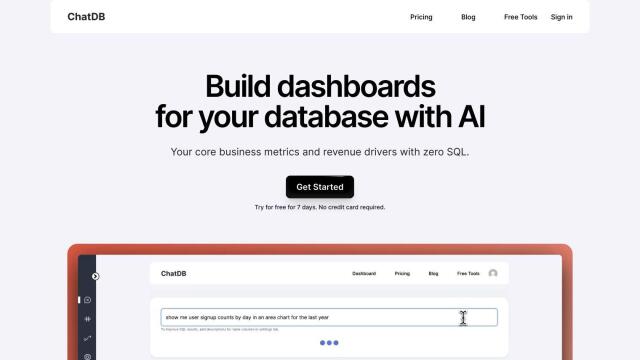Question: I'm looking for a tool that can translate complex data sets into clear, actionable insights - can you suggest something?

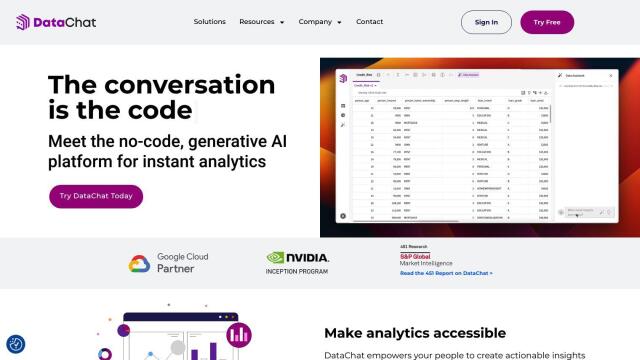
DataChat
If you need a tool to transform raw data into useful information, DataChat could be the answer. The no-code generative AI platform lets you transform complex data into useful information without ever writing a line of code. It's got an interface that's like a familiar spreadsheet and chat interface, so it's accessible to people who aren't necessarily techies. It's got automated data prep, exploration and modeling, so it's good for data scientists, analysts and business users who need to make decisions fast and with confidence.

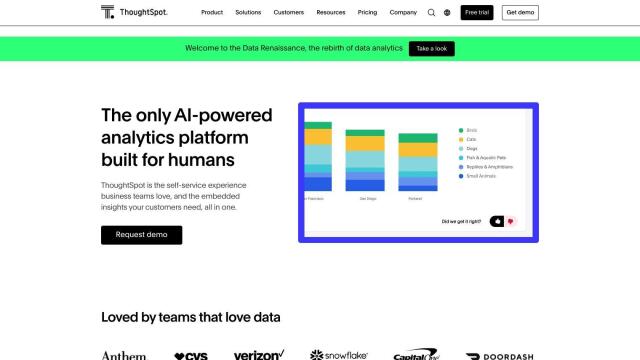
ThoughtSpot
Another good option is ThoughtSpot, an AI-infused analytics tool that lets you ask complex data questions in plain old language and get answers right away. It's geared for business teams and product builders, with natural language queries, visualization and governance controls. ThoughtSpot's self-service interface means you can get to the data and start asking questions, and it's designed to be easy to explore, analyze and share insights with others. It's good for finance, retail, healthcare and other industries.

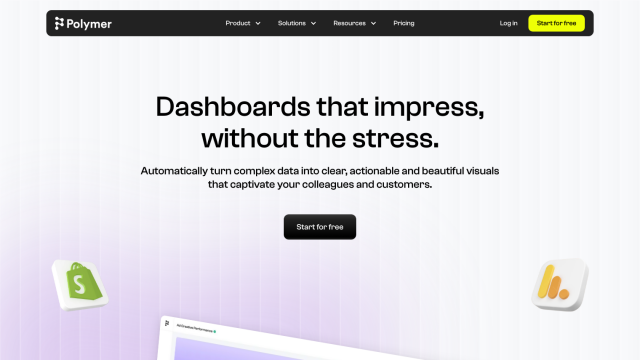
Polymer
If you like a dashboard approach, Polymer is an AI-powered tool for creating dashboards that turns complex data into useful information fast. It can link multiple data sources and let you create a dashboard in a couple of minutes without needing to hire a data scientist. Polymer's features include AI-driven insights, personalized visualization and options to share information, too. It's good for people who want to analyze data and present it to others.

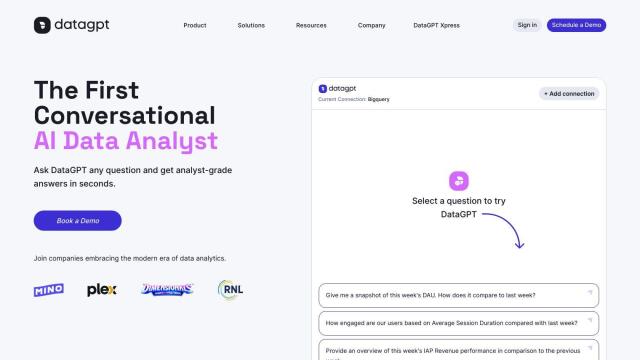
DataGPT
Last, DataGPT is a conversational AI data analyst interface that lets you ask questions and get analyst-level answers in seconds. It can connect to a variety of data sources and has features like automated insights, contextual awareness and a data navigator for exploration. That's good for things like segment checking and anomaly detection, and it can be a fast way to get to data-driven decisions.

